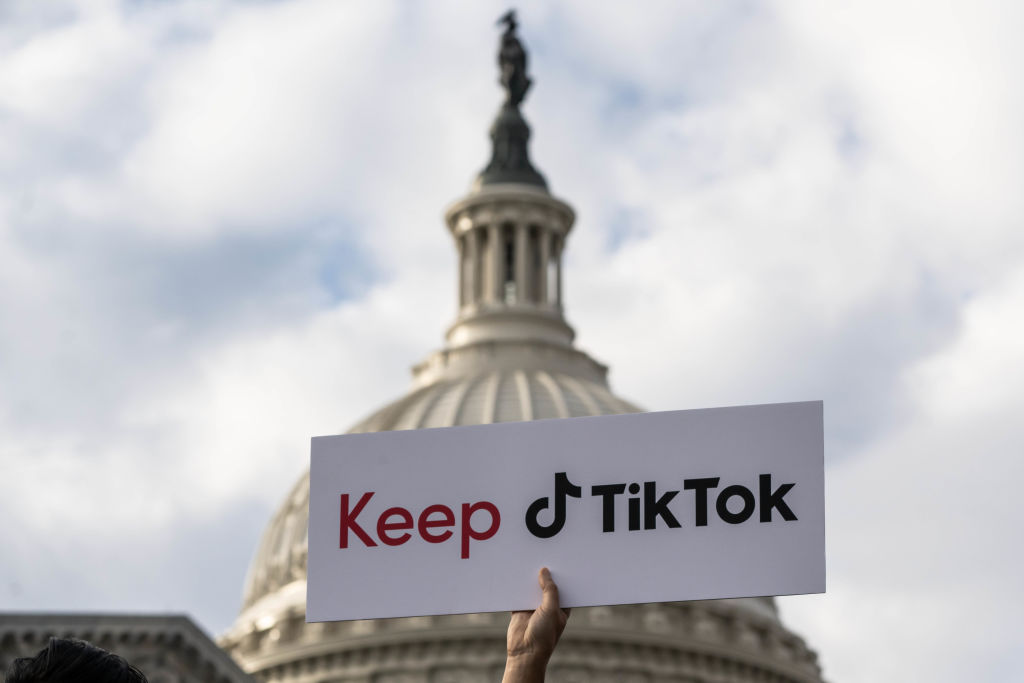A group of TikTok creators followed the company’s lead and filed their own lawsuit to block the U.S. law that would force Chinese parent ByteDance Ltd. to divest itself of the popular video app by January or face a ban.
Like the May 7 case filed by TikTok, eight creators behind Tuesday’s suit are challenging an ultimatum by the U.S. meant to address national security concerns that the Chinese government could access user data or influence what’s seen on the platform. The creators include a rancher from Texas, a college football coach in North Dakota, a founder of a skincare line in Atlanta and a Maryland book lover who promotes Black authors on the platform.
[time-brightcove not-tgx=”true”]
“Our clients rely on TikTok to express themselves, learn and find community,” Ambika Kumar, a lawyer for the creators, said in a statement. “They hope to vindicate not only their First Amendment rights, but the rights of the other approximately 170 million Americans who also use TikTok. The ban is a pernicious attack on free speech that is contrary to the nation’s founding principles.”
A Justice Department spokesperson said the government looks forward to defending the law in court.
“This legislation addresses critical national security concerns in a manner that is consistent with the First Amendment and other constitutional limitations,” the spokesperson said in a statement.
ByteDance has said it doesn’t have any intention of trying to find a buyer for TikTok as the January deadline approaches. Instead, ByteDance wants the law declared unconstitutional, saying it violates the First Amendment and represents an illegal punishment without due process or a presidential finding that the app is a national security threat.
Read More: What to Know About the Law That Could Get TikTok Banned in the U.S.
TikTok has argued the law will stifle free speech and hurt creators and small business owners who benefit economically from the platform. The company said that in response to data security concerns, it spent more than $2 billion to isolate its U.S. operations and agreed to oversight by American company Oracle Corp.
Professional content creators typically don’t make enough money to provide a living from TikTok itself. The social media company has a fund that pays certain creators based on performance, and it also shares revenue from products tagged and purchased through the app. Instead, creators use the app to gain an audience in the hopes of landing lucrative brand sponsorship deals where they make videos for or plug products of brands, much like on other social media platforms.
Read More: TikTok Vows to Fight Its Ban. Here’s How the Battle May Play Out
TikTok’s links to China have faced scrutiny under previous administrations. Former President Donald Trump used an executive order to try to force a sale of the app to an American company or face a ban. But his administration also faced multiple legal challenges—including from creators—and judges blocked the ban from taking place. When Joe Biden became president, he put Trump’s ban under fresh review.
A lobbying push against the law by TikTok Chief Executive Officer Shou Chew failed to convince U.S. lawmakers who worried about the national security threat of China potentially accessing user data and disseminating propaganda to about half the American population. Congress passed the law in April and Biden signed it.
Read More: The Grim Reality of Banning TikTok
Last year, Montana became the first U.S. state to enact a law that would ban residents from using the app. A federal judge sympathized with free-speech arguments by TikTok and creators in blocking the Montana measure while the legal challenges play out.
The Justice Department had no immediate comment on Tuesday’s suit.

